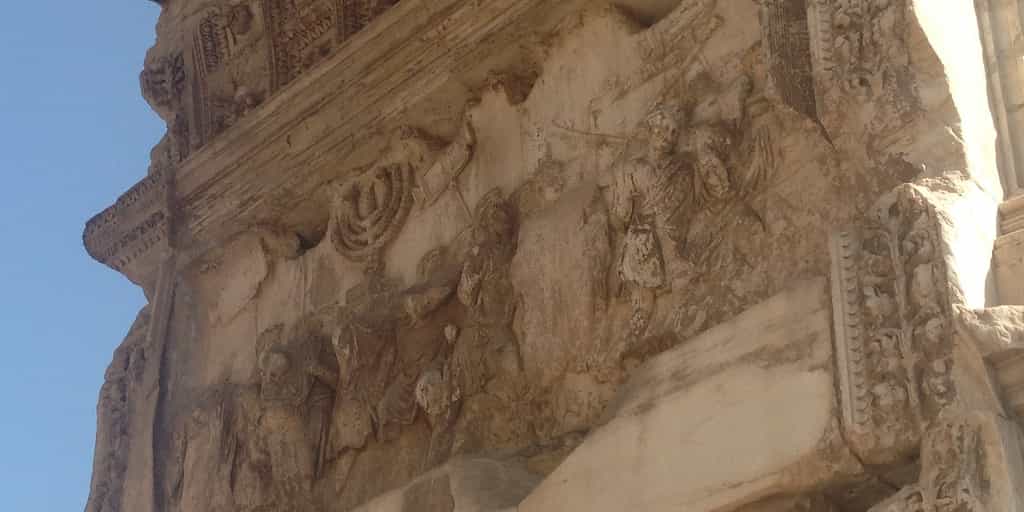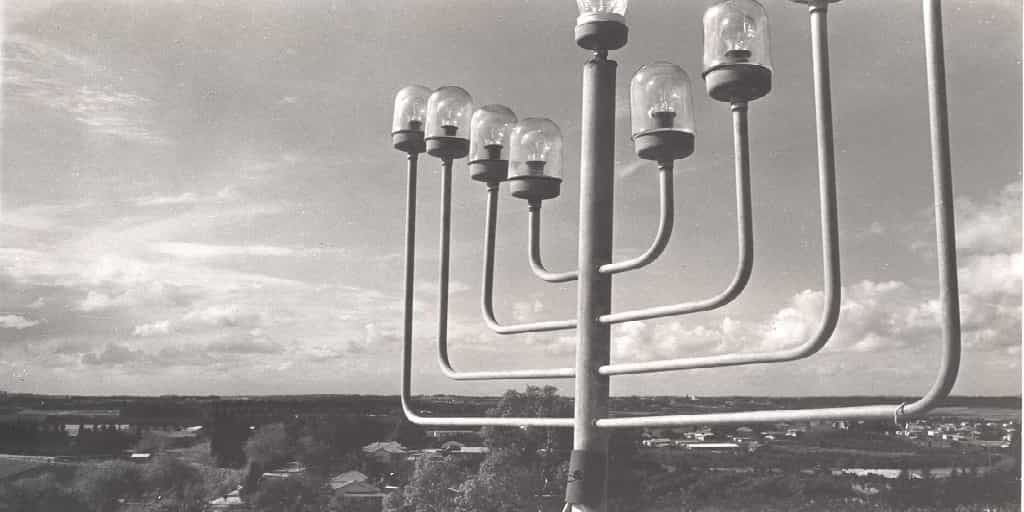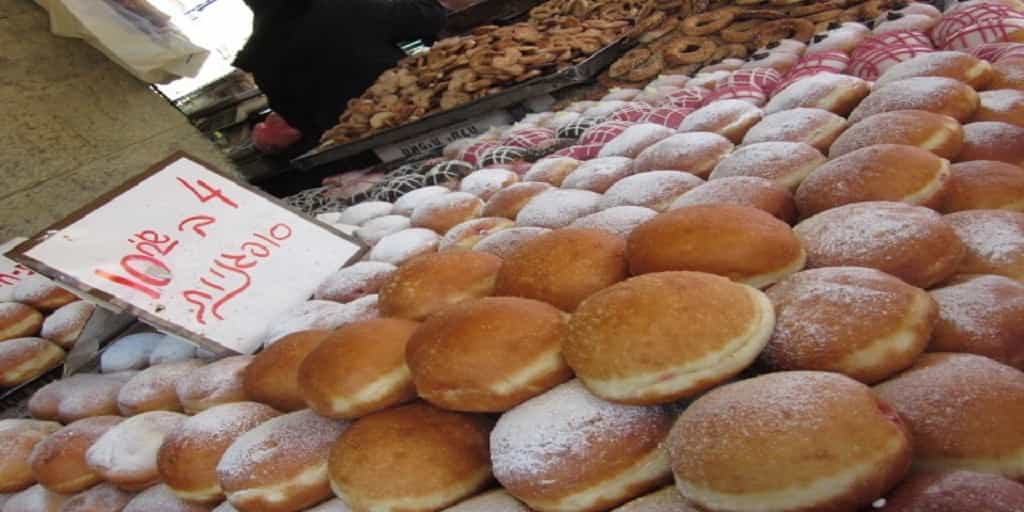Tomorrow night is the first night of Hanukkah, an eight day long holiday that many of us have at least heard of. But how could not? We have four Hanukkah Songs from Adam Sandler, the Rugrat’s Hanukkah at least one episode of Friends about Hanukkah, and so much more. Many of us celebrate it everywhere; we go out to buy presents, Hanukkah wrapping paper, latkes (a kind of potato pancake), sufganiyot (doughnuts). But what are we really celebrating during the eight days of Hanukkah? And, why is the holiday relevant today?
Where did Hanukkah come from?
Hanukkah is one of a few holidays in the Jewish calendar that doesn’t originate in the TaNaKh (Torah, Jewish Bible) or Biblical Period. In the year 167 B.C.E. the Greeks controlled the land that we know today as Israel (and much of the Middle East). They had been ruling the land since 332 B.C.E. They were proud members of the Hellenistic society of the times, and they weren’t afraid to show off their culture. As time went on, the Greek authorities of the land enforced that non- Greek residents of the land practice more Hellenistic practices. Now there were different responses to the imposition of Hellenistic culture.
Some Jews accepted and practiced it fondly; others found certain aspects of it nice and folded those practices into their own lives. Still other Jews rejected it altogether and only wanted to keep Jewish practices. In 167 B.C.E. King Antiochus banned Jewish practice altogether and defiled the holy Jewish Temple in Jerusalem.
This had gone too far for the Hasmonean family (and others) living in Modiin. They banded together to fight against the Greek powers. The fighters were led by the five sons of priest Mattathias, but most well known is Judah the Maccabee. After three years of a hard, out-numbered, and out-powered war, the Maccabees… WON! This is incredible, especially when we take a special moment to think about it. The Jewish powers were small, with limited strength and weapons, and they were fighting the GREEK EMPIRE! An empire that stretched from Mediterranean Europe into Asia; an empire that had no shortage of weapons and soldiers. And this small Jewish fighting force kicked them out of Judea! That’s amazing. In 164 B.C.E., after victoriously kicking the Greeks out of Judea, the Maccabees clean and rededicate the Temple.
And as the story goes…
They found this tiny container of oil for holy lamp. But they put it in anyway. Guess what happened? It stayed lit for eight days!! So this is where we get the eight days from. And this is where the tradition of lighting candles comes from- to symbolically remember the oil lasting longer than the Hasmoneans thought it would. However, I must note that the miracle of the oil wasn’t the main focus of the event in the beginning of its celebration or as it is told in the books of First and Second Maccabees.
In fact, it isn’t until a two and a half centuries later that it receives the name the Festival of Lights from the Jewish historian Josephus. And while the Mishna (a compilation of oral law) calls the holiday Hanukkah (‘Dedication’), it doesn’t give us any laws of how to celebrate the holiday, other than lighting the Hanukkah lights. It is here the miracle of the oil begins to take a more important role in the holiday.
Why did the oil lasting eight days become an essential part of the story? Well, your speculation and answer is as good as mine. But one thought is that the leading Rabbis of the time wanted this period to be a time of celebration with no fasting or mourning. With all the time that had passed between the Talmudic Period and the war against the Greeks (and certainly with the time that passed until today), they wanted a more miraculous focus to the story. And really, oil lasting longer than it should is a miracle. Especially when you think of how central a role oil played at the time. If that isn’t a reason to celebrate, what is?

What can we learn?
Now, no matter how we look at it the story of Hanukkah is really an amazing one. First the story of the Maccabees is truly inspiring. It is one of a group of people who stood up for what they believed in. They didn’t want to be Hellenistic, and didn’t believe that the Greeks should tell them how to live their lives, even if they were in control. And they stood up to that… and won. I think that is something we can take into our personal lives. No one has the right to control your life and dictate how you live it. If they do, you have the right to, and should, put them at a distance where they can’t continue to do so.
It doesn’t have to be the people controlling the country, the government. It can be the bully at school, the co-worker always giving you a hard time, the neighbor who’s always complaining. We are in control of our lives. The story of Hanukkah is one that addresses issues still relevant today: oppression (from the Greeks in their time), identity, religious freedom, the fight for independence (weather individual or otherwise), standing up for what’s right, standing up for the minority. The list goes on.
The oil lasting longer that 1-day; how does that relate to modern day? Well, it gives us a moment to stop and think about the little miracles that have happened in our lives, weather it was in the last week or in the last year. It could be the smallest of things that until now we didn’t think about. But I propose to all of you to take a moment to think about all of those miraculous little moments, and be grateful for them. Let them humble you, and say thank you. Because, really, those are the moments that make the world spin.
Besides, a personal celebration of all of us taking a moment to think about the story of Hanukkah, and being grateful for ‘modern day miracles,’
How is Hanukkah celebrated today in 2015?
While there is no special service in synagogues, there special prayer we say during services throughout the eight days. A specific prayer is added to the Amidah (standing, eighteen prayers), recognizing the holiday and offering thanks to G-d’s role in the events. Psalms of praise (also known as Hallel) are often read throughout the holiday as well.
Candles are light every night of Hanukkah. Now there is an order to this as well. We put the candles in the Hanukkah menorah (candelabrum) from right to left, but we light them left to right.

During the week’s celebrations we eat food fried in oil to remember the miracle of oil in the times of the Maccabees. This is where latkes (potato pancakes) come in, for they are fried in oil. We play a game called Dreidel (top). How do you play? There is a Hebrew letter on each side of the top. Nun, Gimel, Hay, Shin. This letters stand for a sentence that goes: Nes Gadol Haya Sham. שם היה גדול נס. It means ‘a great miracle happened there.’
But where is there? In Israel! So wouldn’t it be a little strange for a top in Israel to say a ‘great miracle happened there,’ when it was here? It would. So they change the word Sham, שם, to po, פה. Po means ‘here.’ In Israel, the sentence says ‘A great miracle happened here.’ Playing driedel, or sevivon in Hebrew, was the way Jewish children under the Greeks all those years ago hid their Torah study from the Greeks. Why did the children need to hide studying Torah? The Greeks outlawed studying Torah. The children would hide in caves to learn Torah and when they heard the Greeks coming they would take out tops to make it look like they were simply playing a game.
Many American Jewish children get presents during Hanukkah. Why? For a couple of possible reasons. Some say it is because of the holiday season in the U.S. and the spirit of giving. But there is a history of giving during Hanukkah that started before Jews arrived to North America. According to the Code of Jewish Law, we can only show the lit candles to recall the miracle and for no other purpose.
The Code’s author, Rabbi Yosef Caro, said we can’t count money in the light of the candles. So giving out money was a way to remember this rule. In addition, the Talmud (the body of Jewish civil and ceremonial law) addresses the issue of money on Hanukkah when it states we must light at least one candle per household every night of Hanukkah. This includes if we must ask others for money. Jews created a tradition to give money to the poor so they too could buy candles and light them during the holiday. As this tradition evolved, presents were given to children, and today many Jewish households in North America give out presents.
But in Israel, people celebrate Hanukkah a little differently.
They eat special jelly filled doughnuts called sufganiyot than potato pancakes. Presents aren’t given out as much. BUT, you can see the Hanukkah menorah being light in many public squares throughout the country, with Hanukkah songs being played after. Lit menorahs are in many store windows, and there are doughnuts galore to eat wherever you go! If anyone knows of different customs practiced throughout the world during Hanukkah, I would love to read them in the comments section below!

Hanukkah Wishes
Now I want to conclude my Hanukkah blog with a special wish to all those celebrating the holiday. There are a lot of traditions out there for Hanukkah. But make it your own. After all it all began with a small Jewish fighting force fighting for what they believed in. What do you believe in? What are you willing to fight for? For example, while I was growing up instead of getting eight presents, my brothers and I got seven presents. We donated the money for the eighth present to a charity of our choosing. So, I hope you all have a wonderful, meaningful, and of course a happy Hanukkah!





